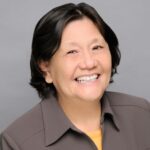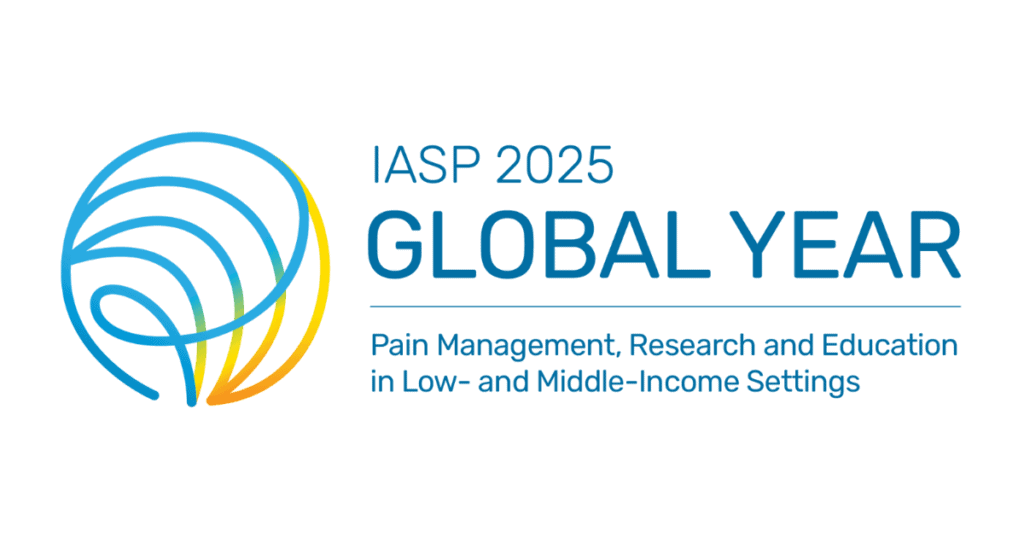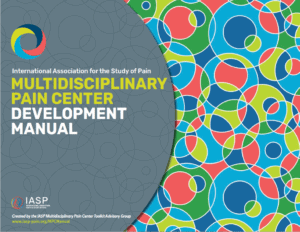Date: Monday, April 7th, 7:00 pm to 9:00 pm, EDT
Globally, chronic pain is one of the biggest contributors to the non-fatal burden of disease experienced by populations, with musculoskeletal pain the leading global cause of disability.
People living with chronic pain can also have wide-ranging negative physical, psychological, and functional effects that leave them unable to participate fully in life. In addition to the impact of pain on individuals, chronic pain also affects families, communities, workplaces, health systems, and the economy as a whole.
Despite very strong and consistent evidence of the impact of pain burden globally, there is a mismatch between burden, and resources allocated to acting on the causes of the problem and improving timely access to effective treatments. This mismatch is evident in the lack of availability of or access to comprehensive, multidisciplinary pain management services. However, without the necessary training and support, the vision of more comprehensive services for pain management will remain unrealized.
The IASP Multidisciplinary Pain Center Toolkit (MPC) project is intended to address this key obstacle, and empower healthcare professionals with the necessary knowledge and skills to set up multidisciplinary pain centers which provide comprehensive pain management services, especially in low and middle income settings with limited resources.
This webinar will provide participants with:
- The compelling reasons for implementing interdisciplinary pain management in low and middle income settings.
- An overview of the IASP MPC Toolkit, including the background and the process by which the toolkit was developed.
- An outline of the training recommended for healthcare providers working in pain centers, including the training programs conducted in Myanmar, Indonesia and Vietnam as part of the MPC Toolkit project.
- Insights into the impact of the Toolkit training in Indonesia and Vietnam.
- Ideas on how to use the Toolkit.
Let us know what you’re hoping to learn!
Participants include:
— Fiona Blyth, PhD, Sydney, Australia.
The urgent need for MPCs in low- and middle-income settings
— Mary Suma Cardosa, MD, Malaysia.
Overview of the IASP MPC Toolkit
— Michael Nicholas, PhD, Sydney, Australia.
Upskilling healthcare professionals to meet the challenge
Featuring additional panelists:
— Jimmy Barus, MD, PhD, Indonesia
— Margarita Calvo, PhD, Chile
— Jocelyn Que, MD, Philippines
— Quyen Van Than, MD, MD, Vietnam
About the participants/panelists
 Jimmy Barus, MD, PhD, is a neurologist who has been interested in pain medicine, especially chronic non-cancer pain, since the beginning of his career. He participated as a contributor to the IASP’s Multidisciplinary Pain Clinic (MPC) toolkit project, actively introducing and advocating for multidisciplinary pain services in Indonesia. Through the IASP’s MPC toolkit training, where he was one of the trainers, the concept of this service was reintroduced in Indonesia with all its challenges. He also became a pioneer in the use of this toolkit as a reference for multidisciplinary pain services by practicing it at the hospital where he worked, while encouraging its use in similar services managed by participants of the 2021 Indonesia MPC toolkit training. He currently serves as vice president of the Indonesian Pain Society and secretary of the council of the Association of Southeast Asia Pain Societies (ASEAPS).
Jimmy Barus, MD, PhD, is a neurologist who has been interested in pain medicine, especially chronic non-cancer pain, since the beginning of his career. He participated as a contributor to the IASP’s Multidisciplinary Pain Clinic (MPC) toolkit project, actively introducing and advocating for multidisciplinary pain services in Indonesia. Through the IASP’s MPC toolkit training, where he was one of the trainers, the concept of this service was reintroduced in Indonesia with all its challenges. He also became a pioneer in the use of this toolkit as a reference for multidisciplinary pain services by practicing it at the hospital where he worked, while encouraging its use in similar services managed by participants of the 2021 Indonesia MPC toolkit training. He currently serves as vice president of the Indonesian Pain Society and secretary of the council of the Association of Southeast Asia Pain Societies (ASEAPS).
 Fiona Blythe, PhD, is a a public health physician and pain epidemiologist, whose work has made a major contribution to understanding how pain conditions affect populations, and also to the growing recognition of pain as a major public health problem and as the leading contributor to the global burden of disability. She has also worked in promoting the uptake and use of research evidence in pain education, and in global and national health policy.
Fiona Blythe, PhD, is a a public health physician and pain epidemiologist, whose work has made a major contribution to understanding how pain conditions affect populations, and also to the growing recognition of pain as a major public health problem and as the leading contributor to the global burden of disability. She has also worked in promoting the uptake and use of research evidence in pain education, and in global and national health policy.
 Margarita Calvo, PhD, pursues research interests complementary to her clinical work. Her general aim is to better understand the mechanisms behind neuropathic pain. She studies both animal models and patients employing a variety of techniques ranging from transgenic mouse models to human psychophysical studies and genetics. She currently has two active lines: neuropathic pain in dermatological diseases, and pain modulation by potassium channels. Apart from research, Dr. Clavo currently attends a chronic pain patient unit twice a week within the Interdisciplinary Pain Management Team at Pontificia Universidad Católica de Chile.
Margarita Calvo, PhD, pursues research interests complementary to her clinical work. Her general aim is to better understand the mechanisms behind neuropathic pain. She studies both animal models and patients employing a variety of techniques ranging from transgenic mouse models to human psychophysical studies and genetics. She currently has two active lines: neuropathic pain in dermatological diseases, and pain modulation by potassium channels. Apart from research, Dr. Clavo currently attends a chronic pain patient unit twice a week within the Interdisciplinary Pain Management Team at Pontificia Universidad Católica de Chile.
 Mary Suma Cardosa, MD, is a Consultant Pain Specialist who retired from Selayang Hospital in 2016 after serving for more than 30 years in the Ministry of Health (MOH) Malaysia. Currently, she is a visiting consultant pain specialist at Hospital Tuanku Muhriz UKM in Kuala Lumpur. Dr. Cardosa has done pioneering work in the field of Pain Management in Malaysia – this includes starting the first Acute Pain Service in the MOH in Hospital Kuala Lumpur in 1993, setting up the first multidisciplinary pain clinic in theMOH in Hospital Selayang in 2000, and helping to set up the first inpatient palliative care unit in the MOH in Hospital Selayang in 2002. She was also responsible for implementing Pain as the 5th Vital Sign in the MOH in 2008, and subsequently spearheaded the “Pain Free Hospital” initiative of the MOH in 2011. Since her retirement from full-time clinical practice, she continues to be actively involved in teaching pain management in Malaysia and in the ASEAN region. She was President of the Malaysian Association for the Study of Pain (MASP) for 10 years and now serves as Advisor to the MASP. She was a faculty member of the first IASP Southeast Asia Pain camp in 2011, and has continued to be involved in running the 5 subsequent biennial pain camps (2013-2023), which are run by the Association of Southeast Asian Pain Societies (ASEAPS), where she serves as a council member.
Mary Suma Cardosa, MD, is a Consultant Pain Specialist who retired from Selayang Hospital in 2016 after serving for more than 30 years in the Ministry of Health (MOH) Malaysia. Currently, she is a visiting consultant pain specialist at Hospital Tuanku Muhriz UKM in Kuala Lumpur. Dr. Cardosa has done pioneering work in the field of Pain Management in Malaysia – this includes starting the first Acute Pain Service in the MOH in Hospital Kuala Lumpur in 1993, setting up the first multidisciplinary pain clinic in theMOH in Hospital Selayang in 2000, and helping to set up the first inpatient palliative care unit in the MOH in Hospital Selayang in 2002. She was also responsible for implementing Pain as the 5th Vital Sign in the MOH in 2008, and subsequently spearheaded the “Pain Free Hospital” initiative of the MOH in 2011. Since her retirement from full-time clinical practice, she continues to be actively involved in teaching pain management in Malaysia and in the ASEAN region. She was President of the Malaysian Association for the Study of Pain (MASP) for 10 years and now serves as Advisor to the MASP. She was a faculty member of the first IASP Southeast Asia Pain camp in 2011, and has continued to be involved in running the 5 subsequent biennial pain camps (2013-2023), which are run by the Association of Southeast Asian Pain Societies (ASEAPS), where she serves as a council member.
 Michael Nicholas, PhD, is a Clinical Psychologist with > 40 years of experience in the pain field. He is the Director of Pain Education at the Pain Management Research Institute – Kolling Institute, Sydney Medical School and the Director of multidisciplinary pain management programs (including ADAPT) at the MJC Pain Management & Research Centre at Royal North Shore Hospital.
Michael Nicholas, PhD, is a Clinical Psychologist with > 40 years of experience in the pain field. He is the Director of Pain Education at the Pain Management Research Institute – Kolling Institute, Sydney Medical School and the Director of multidisciplinary pain management programs (including ADAPT) at the MJC Pain Management & Research Centre at Royal North Shore Hospital.
 Jocelyn C. Que, MD, is the Program Director at the Center for Pain Medicine, University of Santo Tomas Hospital Faculty of Medicine and Surgery. She was the first Filipino overseas-trained expert in Pain Management having obtained her masters’ degree and hands-on clinical studies at the University of Sydney in Australia.
Jocelyn C. Que, MD, is the Program Director at the Center for Pain Medicine, University of Santo Tomas Hospital Faculty of Medicine and Surgery. She was the first Filipino overseas-trained expert in Pain Management having obtained her masters’ degree and hands-on clinical studies at the University of Sydney in Australia.
 Quyen Van Than, MD, is an anesthesiologist and a graduate of the IASP Clinical Pain Management Fellowship at Siriraj Hospital. He currently serves as the Chief of the Pain Clinic at Hospital 199 in Da Nang, Vietnam. Actively engaged in advancing pain management in Vietnam, he has helped organizing many pain education programs in Vietnam, including IASP Toolkit training programs and Essential Pain Management. As a pioneer in establishing interdisciplinary pain clinics in Vietnam, he is dedicated to improving patient care through a comprehensive, multidisciplinary approach.
Quyen Van Than, MD, is an anesthesiologist and a graduate of the IASP Clinical Pain Management Fellowship at Siriraj Hospital. He currently serves as the Chief of the Pain Clinic at Hospital 199 in Da Nang, Vietnam. Actively engaged in advancing pain management in Vietnam, he has helped organizing many pain education programs in Vietnam, including IASP Toolkit training programs and Essential Pain Management. As a pioneer in establishing interdisciplinary pain clinics in Vietnam, he is dedicated to improving patient care through a comprehensive, multidisciplinary approach.



